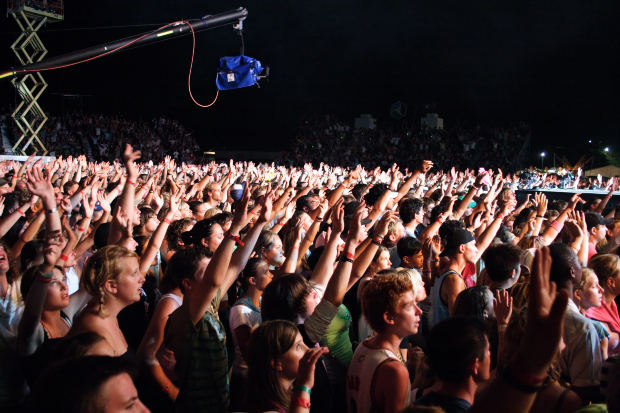Quickies
Quickies: Pronouns, hurricanes, and breast milk as health food

- A linguist on the story of gendered pronouns – “If you’ve ever seen people complain about singular “they” or so-called generic “he” (for the record, I am 100% for singular they and 100% against “he” as a default pronoun), or if you’re just really not so keen on gender binaries, you may have wondered what life and language would be like without gender pronouns.”
- Aaron Lewis yells at crowd for molesting crowd-surfing girl – From Mindy.
- Female-named hurricanes kill more than male-named hurricanes because people don’t respect them – “Female-named storms have historically killed more because people neither consider them as risky nor take the same precautions.” From Sarah.
- Breast milk as health food for men? Experts caution against bizarre new trend – “Some men are turning to human milk in a quest to bulk up or improve their health, believing all the benefits it provides to infants can produce similar effects in adults.” From Michael.





Best quote from the pronoun story:
“But then, in the late 18th century, grammarians started recommending that people use he as a gender nonspecific pronoun because they was ostensibly plural, as part of the grand tradition of awkwardly shoehorning English grammar into Latin which has caused many of your present grammatical insecurities, and which I’m totally sure had nothing whatsoever to do with the patriarchy”
The study claiming feminine-named hurricanes are more dangerous has been criticised on methodological grounds. E.g., http://phenomena.nationalgeographic.com/2014/06/02/why-have-female-hurricanes-killed-more-people-than-male-ones/ . A major problem is that prior to 1979, all hurricanes had female names, and hurricanes also used to be more dangerous due to poorer predictability and mitigation strategies. So there is actually a third variable (year) that explains the correlation. When the author’s tried to correct for this by looking separately at hurricanes after 1979, the effect turned into a non-statistically-significant trend, which earns no points. There are a number of other issues as well, but to me this seems like the key one.
The idea that implicit sexism could have an effect on people’s responses to threats from natural disasters does seem reasonable to me, but I don’t think this study provides good evidence that such an effect is real.
Amanda,
“Female-named hurricanes kill more than male-named hurricanes because people don’t respect them” That sounds like an Onion headline.
You know what’s really shitty? They keep cheering, like it’s some kind of joke. Are you not entertained?
I just saw this, according to Io9 the story about hurricanes with female names killing more people than those with male names, according to them is false.
No, Female Hurricanes Are Not Deadlier Than Male Hurricanes
http://io9.com/no-female-hurricanes-are-not-deadlier-than-male-hurric-1585563258